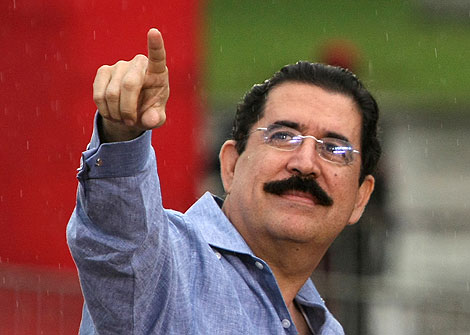Manuel Zelaya, ex presidente de Honduras y actual coordinador del partido LIBRE, se encuentra nuevamente en el foco del debate político debido a la posibilidad de que su nombre figure en archivos de cooperación judicial entre Estados Unidos y América Latina. Los rumores sobre supuestas acusaciones del exjefe de inteligencia venezolano Hugo “El Pollo” Carvajal han reavivado el debate sobre la vulnerabilidad de líderes históricos frente a investigaciones internacionales relacionadas con corrupción y narcotráfico.
The impact of Carvajal’s remarks on a regional scale
Hugo Carvajal, who once held a position close to former leader Hugo Chávez, is currently entangled in judicial processes in the United States after being extradited from Spain. As reported by intelligence insiders in Washington, during his discussions with US officials, he referred to politicians from multiple nations in Latin America, sparking conjectures about a potential connection with Honduras.
In this context, the name of Manuel Zelaya has reportedly appeared on the list of regional actors mentioned by Carvajal, who handled sensitive information on illegal operations and financing networks during his time in the Venezuelan military and political apparatus. Although no judicial evidence has been released to confirm direct accusations, the mere possibility has opened a debate in Tegucigalpa about the scope of a possible investigation.
Political impact in Honduras and on LIBRE
Las filtraciones relacionadas con el testimonio de Carvajal han generado inquietud en los círculos políticos de Honduras, especialmente entre el partido gobernante, donde LIBRE tiene el control tanto del poder ejecutivo como del Congreso. Zelaya, como coordinador del partido, ejerce una influencia determinante en las decisiones estratégicas del gobierno actual, lo que convierte cualquier acusación en un tema de estabilidad institucional.
The specter of an investigation or extradition request against the former president would not only affect the figure of a historic leader, but could also have repercussions on the internal dynamics of LIBRE and the governability of the country. Opposition sectors have already raised questions about the transparency of national institutions and the possibility that investigations involving prominent political figures have been delayed.
A situation of organizational doubt
The case of Hugo Carvajal shows how international judicial processes can transcend borders and have an impact on the political life of countries such as Honduras. References to foreign leaders in judicial statements often cause tensions that affect public confidence in institutions and the perception of the legitimacy of political actors.
Various industries are on edge awaiting potential actions by the US legal system, due to the revelations regarding Carvajal, which may influence Tegucigalpa. Consequently, this situation enhances a sense of instability where anti-corruption efforts, political conflicts, and weak institutions converge.
The unfolding of this scenario presents Honduras with a dilemma of regional scope: how to manage the impact of international accusations in a context of political polarization and citizen demands for greater transparency. At this point, the future of Manuel Zelaya and the role of LIBRE appear linked to the country’s ability to face the challenges of institutional credibility in an environment marked by international judicial pressure.
